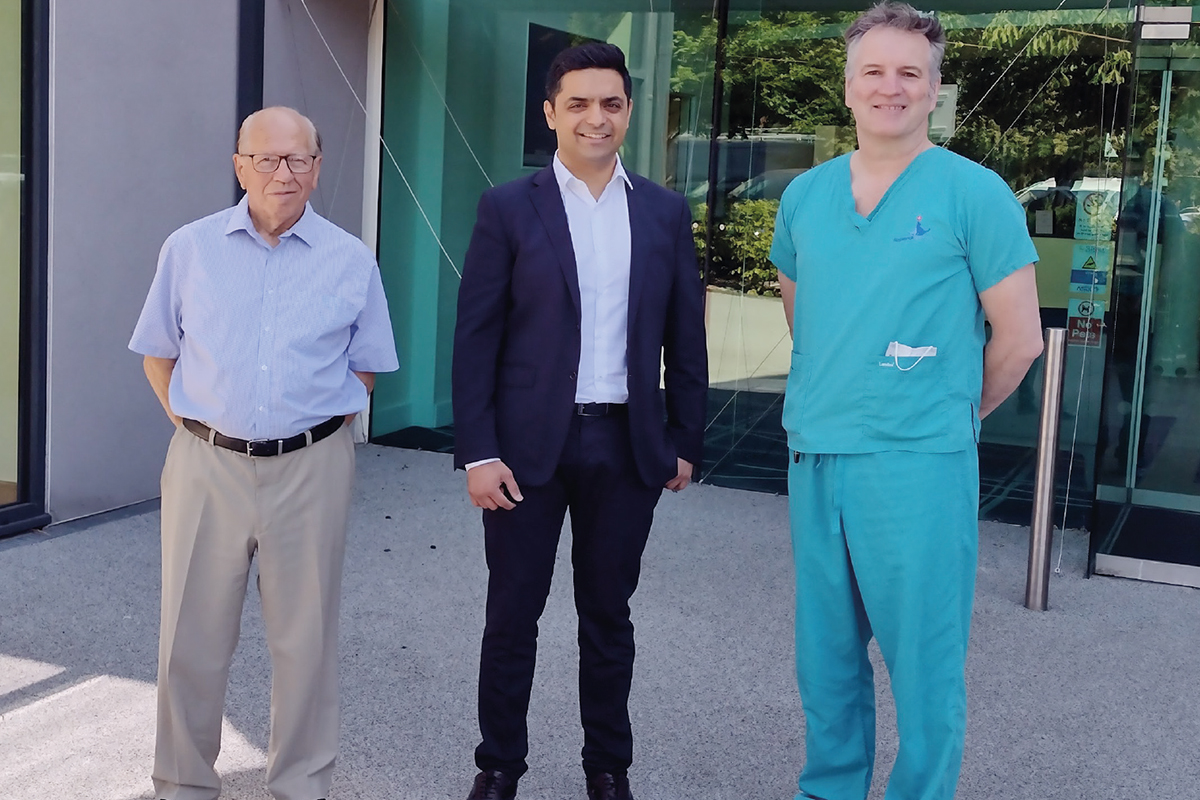
Surrey Research Park, together with the University of Surrey, recently launched a competition designed to help businesses innovate and grow. The Collaborate22 competition was open to all tenants and companies within SETsquared and Rocketdesk
The competition, funded by the Higher Education Innovation Fund, was aimed at encouraging UK-based companies, in particular Surrey Research Park tenants, to gain first-hand experience of working with the University; enable companies to harness the University’s world-leading expertise and facilities; support the development of new relationships and accelerate existing relationships with the University; and explore real challenges or genuine barriers faced by the business. This is something which can only be addressed with the help of academic expertise. The projects were chosen where there was an ability to use the results of the Collaborate22 project to pump-prime larger projects in the future.
Projects could, for example, focus on ‘Build Back Better’ or future-proofing your organisation post-Covid, or perhaps explore specific challenges, testing new products or introducing new processes within the business. They may also involve a feasibility study or proof-of- concept — designed to help businesses innovate and grow.
Collaborate22 was used to fund the cost of such projects and were expected to involve mainly exploratory consultancy and technical services from the University. The funding covered the cost of the services delivered by the University of Surrey and may have also included direct costs incurred by the company as part of the delivery of the project. The University was ideally looking to award four to five projects, valued at £20-25,000 each. Collaborate22 could only be used to benefit the applicant Business Partner and the University; a project could not involve any third parties.
Tim Riches, Chief Commercial Officer at Surrey Research Park said: “We are delighted to award funding to Surrey Research Park companies Direk, Fitzpatrick Referrals, and Solacote, for three innovative projects. The funding will enable the companies to access academic expertise and facilities in Chemical and Process Engineering, Veterinary Medicine, Biosciences and Medicine, Health Sciences, and Mechanical Engineering Sciences. In addition, the companies will benefit from the talent of our postgraduate and doctoral students.
Tim Riches comments: “These projects are an example of one of the many ways in which the University of Surrey collaborates with companies on Surrey Research Park and beyond to explore real challenges and genuine barriers faced by business, exchange knowledge and create impact. We look forward to seeing the outcomes of
the projects and developing further collaborations”.
Surrey Research Park successful applicants:
FITZPATRICK REFERRALS
Surrey’s School of Veterinary Medicine and School of Biosciences and Medicine
Professor Nick Bacon co-founded the Fitzpatrick Referrals Oncology and Soft Tissue Hospital at Surrey Research Park as Clinical Director, and joined the faculty at Surrey’s School of Veterinary Medicine in 2014 as Chair of Surgical Oncology (part-time) from the University of Florida.
Nick and his team applied for Collaborate22 funding, to use methods that have successfully indicated the presence of cancers in humans, and leverage these for research in our pets. Working in collaboration with colleagues at the University of Surrey’s School of Veterinary Medicine and School of Biosciences and Medicine, they will search for biomarkers of cancer in animal blood samples and develop tests for early detection of companion animal cancers. It is hoped the outcome of this project might lead to future commercialisation of the tests themselves, as well as longevity of health and wellbeing for pets and their owners.
Nick comments; “In many ways humans and companion animals are highly related. This includes the diseases we suffer from, as well as possible treatments and cures. Similar to humans, companion animals can suffer from chronic and age-related diseases including cancers. If we can detect cancer early, we can significantly improve the animal’s health and wellness.”
www.fitzpatrickreferrals.co.uk
DIREK
Surrey University Department for Chemical and Process Engineering
DIREK, a company that has spun out of the University of Surrey’s ecosystem, is led by Dr Amir Taba, Chief Technology Officer.
It has researched, tested and created one of the most advanced technologies to help reduce business challenges around energy saving, space utilisation, health and safety, and indoor navigation. It has won several Innovate UK awards and has recently commercialised its occupancy monitoring system.
Collaborate22 funding will help the team explore the further use of DIREK’s occupancy monitoring technology and building management systems, with the technology being deployed across Surrey Research Park and the 6G Innovation Centre at the University of Surrey, with the aim of evidencing reduced energy consumption in an indoor space.
Working with the department for Chemical and Process Engineering, the project will be used as a showcase to prove the benefits of this technology in improving indoor sustainability and energy management, giving large companies the incentive to invest, and giving DIREK the chance to leverage further R&D funding.
SOLACOTE
Surrey University’s School of Mechanical Engineering Sciences
Michael Chambers, CEO of Solacote applied to Collaborate22 to help further the company’s research into novel nanomolecular PV solar paint.
‘Project Sunergy’ aims to address global warming and climate change, by harnessing renewable energy from the sun, collecting this through a novel type of paint which generates electricity using graphene, and distributes this to next generation energy storage units.
The solar paint can be applied to the roof and walls of a building making it an attractive addition to a property and presenting a large efficient energy collecting surface. It has a significant number of advantages over solar panels including cost, lighter weight and a more effective energy conversion ratio.
Working with academics in the University’s School of Mechanical Engineering Sciences and Centre for Engineering Materials, the project will demonstrate feasibility of this type of energy generation, through formulation of the solar paint, subsequent analysis, and development of a future roadmap to commercialisation.





